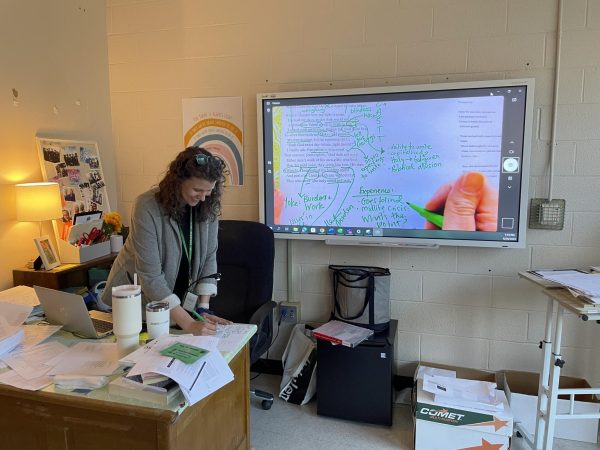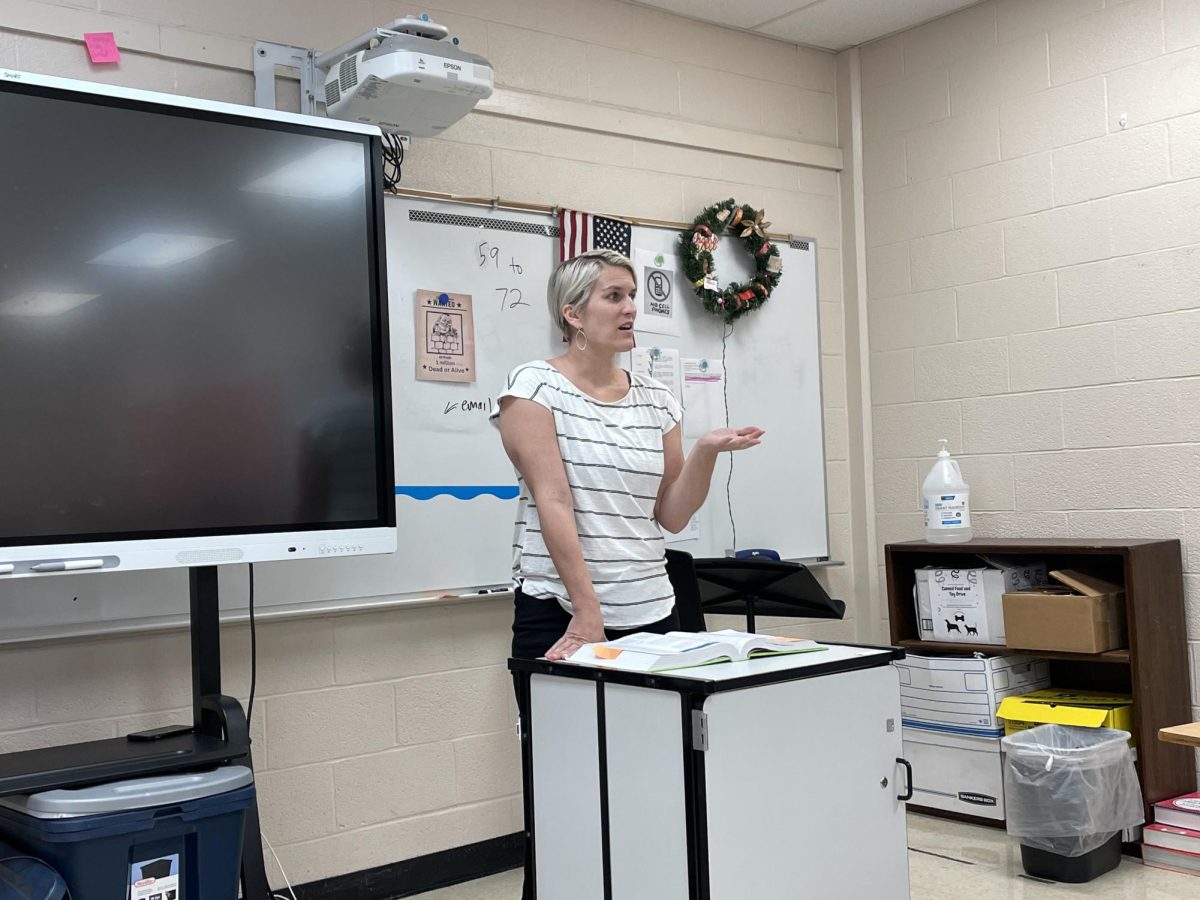A new era for Advanced Placement (AP) English classes at White Station is underway. AP Language and Composition and AP Literature and Composition are undergoing new changes as Lauren Larson and Alison Hollis take over. The pair of teachers are bringing something new to their classes as they incorporate their passions for English, transforming the department and marking the start of a year filled with possibility for AP English students.“I have a lot of enthusiasm for literature and having discussions but also I have a lot of enthusiasm for you all [students] as humans and making sure that you are … either seeing yourself in pieces of literature or seeing the world in a piece of literature … and I think that can be really powerful,” Hollis said.
After former AP Literature teacher Monique Fisher and former AP Language teacher Seth Burgess both left White Station last school year, the AP English classes needed new teachers. Hollis and Larson, both teachers from within the school, inquired after the open positions before being offered the job.
“One of my district advisors came, watched me teach my honors class last year [and] felt like I was meeting the rigor of what they would want in an AP class … And so he signed off and obviously Ms Holland signed off,” Hollis said.
While Hollis has experience teaching AP Literature from her previous work at Pearl-Cohn High School in Nashville and a former St. Louis charter school, she is bringing her AP work to White Station for the first time. Hollis first came to White Station three years ago, and since then has taught several classes within the English department.
“My first year [at White Station], I taught all English II and I had one Honors class,” Hollis said. “And then, I had the same schedule last year plus a complex text class … and I taught Creative Writing Honors and Creative Writing.”

Larson came to White Station last year to teach Theater. She has a background in applied linguistics with an ESL focus and is fluent in French. Larson has prior experience teaching AP Language and English courses at other schools, including English III.
“English III is a little bit amorphous,” Larson said. “… I find the curriculum of AP lang more useful for people going into college … It’s mainly based on nonfiction texts and it teaches you how to break down any piece of language and also [how] to write about different subjects.”
In her first year teaching AP Literature, much of Hollis’s new approach revolves around her students. She plans to prioritize feedback and embrace a constructivist learning theory in teaching literature.
“I think [students] come into my room with a lot of literary experiences, both in class from an academic standpoint and also from just a personal reading standpoint, and so I don’t think of you as being students I need to impart wisdom into, but instead help you construct your own understandings of texts and of literature and of reading and writing,” Hollis said.
One new thing Hollis is bringing to AP Lit is her unusual grading policy. She grants students the opportunity to redo their work and earn up to an 80.
“I do that for two reasons, one I just really don’t think that learning ends, so I really do believe that you should have the opportunity if you are willing to put in the work to master whatever we’ve been practicing,” Hollis said. “But I also think that it’s a way to keep students from feeling the need to cheat … If you could also get the grade another way and support the grade with learning I think you’re less likely to cheat.”
Hollis’s work at White Station stems from her passion for literature and education. She discovered her affinity for teaching when she became a teacher cadet in high school, working with a fifth grade class as a teacher assistant for an entire semester through the program. However, Hollis’s love for storytelling started even earlier.
“My Dad’s a pastor and part of what he does is … tell stories and I think that from [being] a little girl watching him do that, [it] made me see the power that stories have on people,” Hollis said.
Larson’s early enthusiasm for language led her to pursue a greater understanding of literature and linguistics. Though she discovered the intrigue of languages later, Larson has been an avid reader since she was a child. Her ardor for literature and analysis has coupled with her enthusiasm for theater, which requires similar thinking.
“At my high school you could take so many English classes,” Larson said. “There were so many electives, and I think I’ve always enjoyed doing it. And part of theater is analyzing literature because whenever you’re playing a character or you’re directing a scene, it’s always like what’s going on? Who are they talking to? What do they want? How are they going to get it? Which is the same thing with rhetoric … it’s like the same framework.”
Larson’s approach to AP Language revolves around a theme of American history and culture. She is framing her course around works relating to this theme in order to build up her students’ knowledge base. By doing this, students can draw from more specialized knowledge during the AP exam and incorporate better evidence into their essays.
“If you look at past [AP Lang] exams, it’s always rooted in something in America or American culture,” Larson said. “… the central question for any [AP Lang] teacher is what ‘stuff’ are we going to go over so I try to stick to American history because then it blends with what they learned in AP U.S. History so it’s more likely that they can be specific when they’re writing at the end of the year.”
As Hollis and Larson prepare for their upcoming years of AP English, they plan to use this year as a guide for improvement. As they build new ideas into their classes, they remain open to feedback and adapt with their students.
“I like to think of this year as like my learning year, you know, I’m figuring things out, I’m going to try different things and see what works best for White Station students,” Hollis said.




































